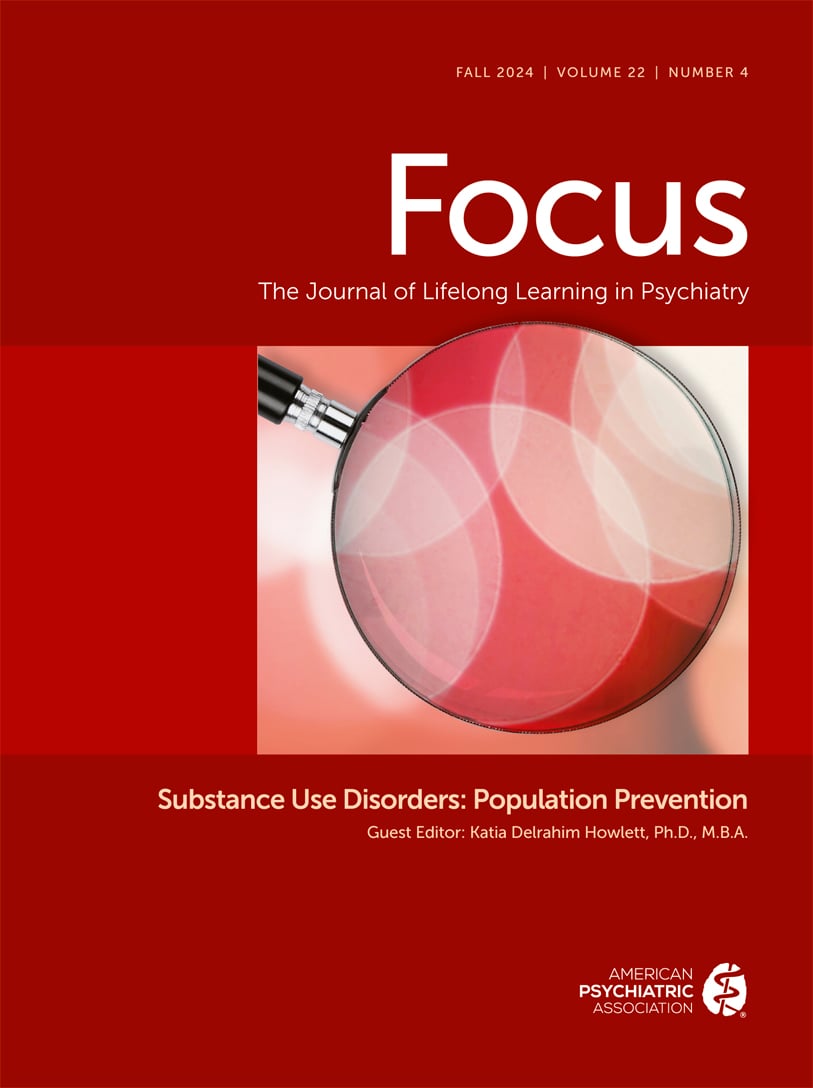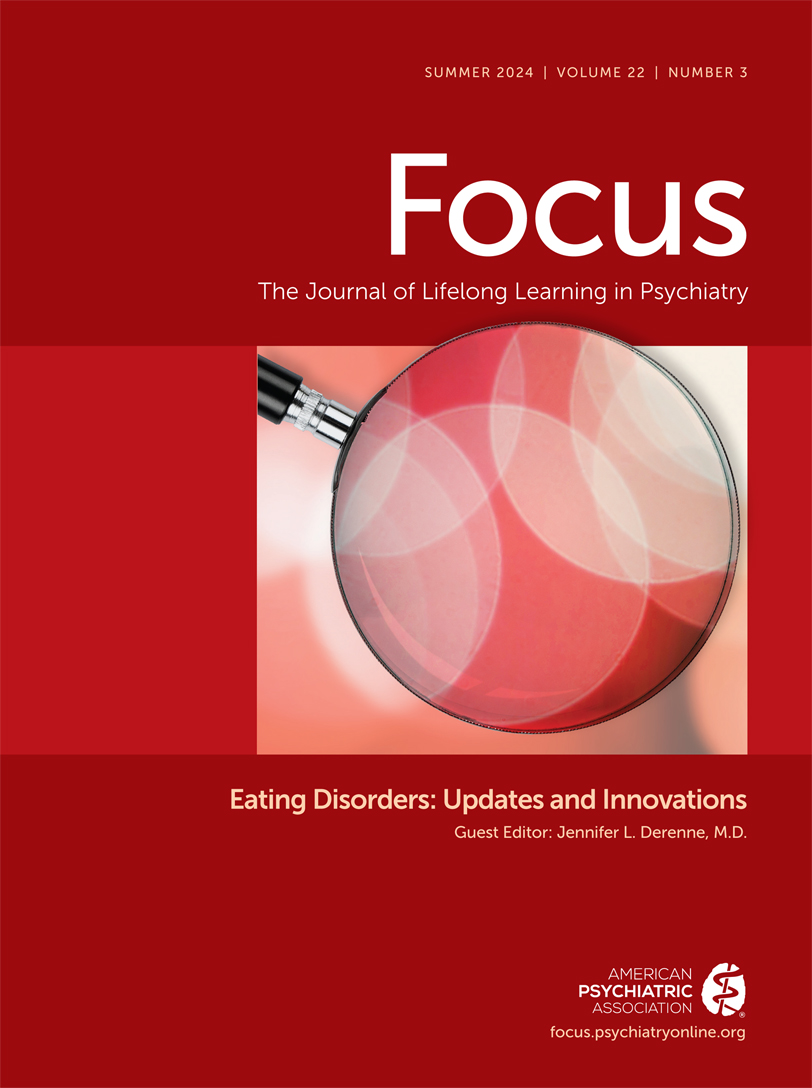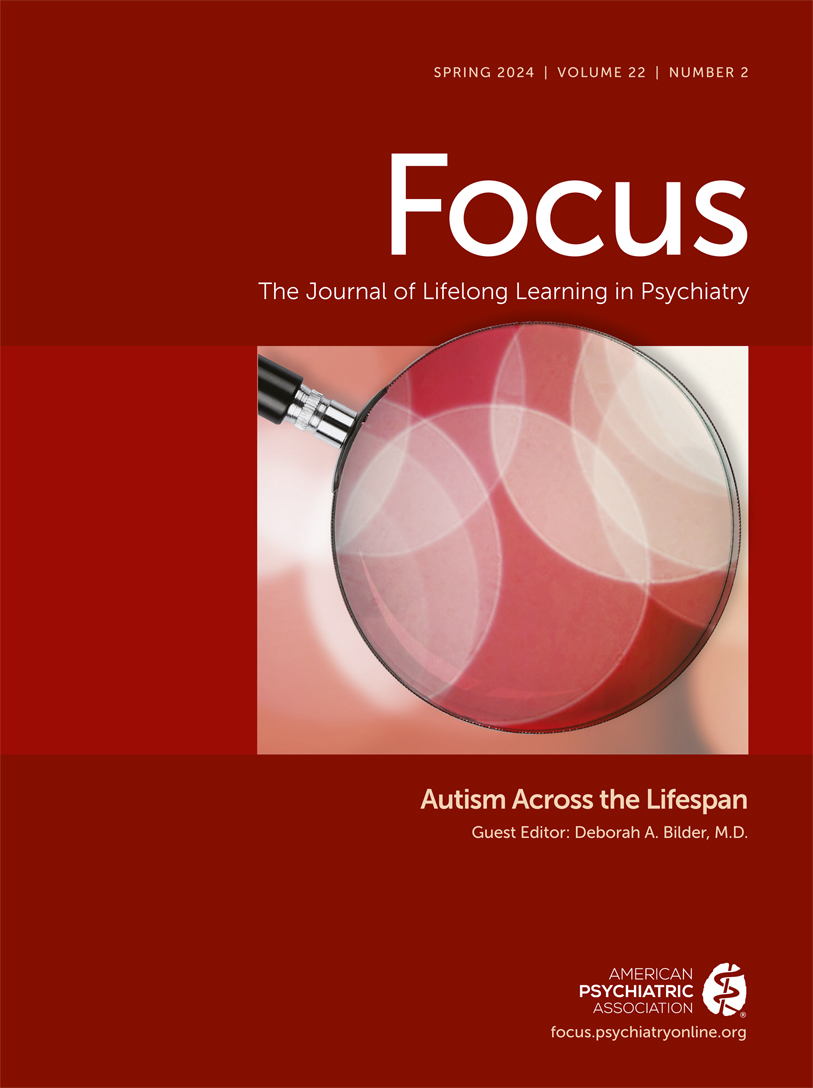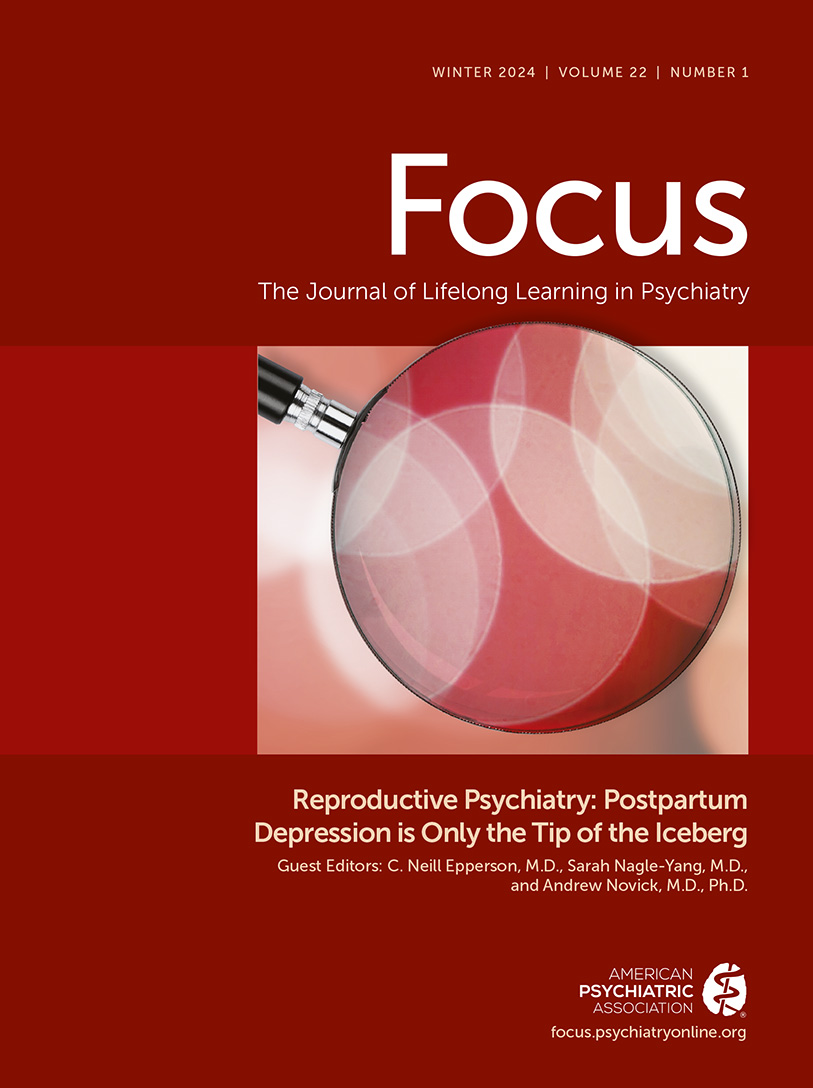Focus
- Volume 4
- Number 2
- April 2006
EDITORIAL
CLINICAL SYNTHESIS
Publication date: 01 April 2006
Pages167–172Psychodynamic psychotherapy, in all its forms, is the psychotherapy most frequently provided by psychiatrists. Psychodynamic therapy is useful in long-term, short-term, supportive, crisis intervention, and group/family therapies, with patients of all ...
https://doi.org/10.1176/foc.4.2.167Publication date: 01 April 2006
Pages179–184Interpersonal psychotherapy (IPT) is a well-researched psychotherapy that has only recently begun to spread into clinical use. A manual-based, diagnosis-targeted, time-limited treatment, IPT has demonstrated efficacy as a treatment for mood and eating ...
https://doi.org/10.1176/foc.4.2.179INFLUENTIAL PUBLICATIONS
Publication date: 01 April 2006
Pages204–214Studies suggest a complex relationship between cognitive-behavior therapy (CBT) and pharmacotherapy for the combined treatment of mood disorders and anxiety disorders. Combined treatment for depression may have beneficial effects when applied to patients ...
https://doi.org/10.1176/foc.4.2.204Publication date: 01 April 2006
Pages223–233Cognitive-behavioral therapy (CBT) has a proven role as an adjunct to antipsychotic medication and remediative approaches such as social skills training in the management of residual symptoms of chronic schizophrenia. Positive symptoms, depression, and ...
https://doi.org/10.1176/foc.4.2.223Publication date: 01 April 2006
Pages234–243Objective: This study compared the effectiveness of short-term dynamic psychotherapy and cognitive therapy for out-patients with cluster C personality disorders. Method: Patients (N=50) who met the criteria for one or more cluster C personality disorders ...
https://doi.org/10.1176/foc.4.2.234Publication date: 01 April 2006
Pages244–252Objective: The aim of this study was to determine whether the substantial gains made by patients with borderline personality disorder following completion of a psychoanalytically oriented partial hospitalization program, in comparison to patients treated ...
https://doi.org/10.1176/foc.4.2.244Publication date: 01 April 2006
Pages253–268Supportive therapy is the psychotherapeutic approach employed with the majority of mentally ill individuals. Nevertheless, most mental health professional training programs dedicate little time and effort to the teaching and learning of supportive therapy,...
https://doi.org/10.1176/foc.4.2.253Publication date: 01 April 2006
Pages269–277The relationship between therapeutic alliance and treatment outcome was examined for depressed outpatients who received interpersonal psychotherapy, cognitive-behavior therapy, imipramine with clinical management, or placebo with clinical management. ...
https://doi.org/10.1176/foc.4.2.269Publication date: 01 April 2006
Pages278–290Objective: The authors investigated patient characteristics predictive of treatment response in the National Institute of Mental Health (NIMH) Treatment of Depression Collaborative Research Program. Method: Two hundred thirty-nine outpatients with major ...
https://doi.org/10.1176/foc.4.2.278Publication date: 01 April 2006
Pages291–296A prospective study of 1,958 outpatients found that hopelessness, as measured by the Beck Hopelessness Scale, was significantly related to eventual suicide. A scale cutoff score of 9 or above identified 16 (94.2%) of the 17 patients who eventually ...
https://doi.org/10.1176/foc.4.2.291Publication date: 01 April 2006
Pages297–305The authors present a brief written psychodynamic formulation that focuses on central conflicts, anticipates transferences and resistances, and helps guide all psychiatric treatments. After placing the presenting problem in the context of the patient’s ...
https://doi.org/10.1176/foc.4.2.297Past Issues
View Issues Archive
Vol. 22 | No. 4

Vol. 22 | No. 3

Vol. 22 | No. 2
